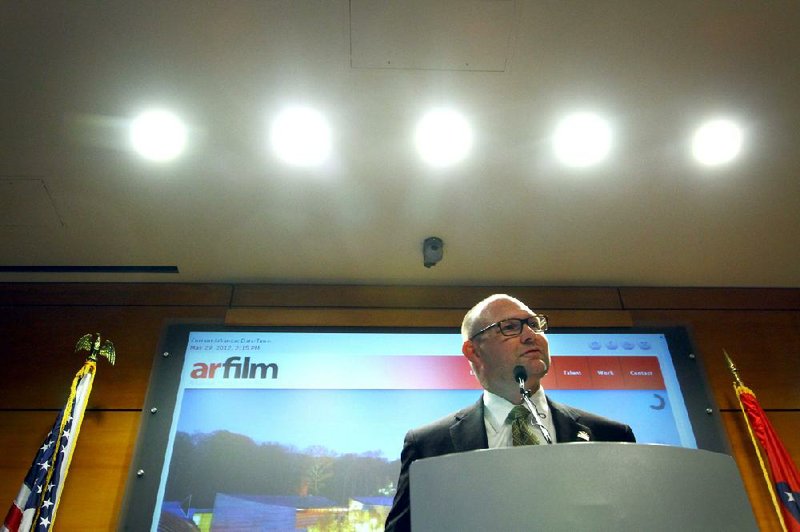LITTLE ROCK — The state’s film industry decided to strike while the movie’s hot. Arkansas’ largest film production, Mud, is gathering international acclaim, and state officials reaffirmed their commitment Tuesday to becoming more competitive.
The Arkansas Production Alliance has been formed as a partnership between Little Rock and Northwest Arkansas that will work with the Arkansas Film Commission to attract and sustain a competitive film and digital-content production industry across the state.
“We are launching this in conjunction with the Little Rock Film Festival,” said Arkansas Film Commissioner Christopher Crane. The festival started Tuesday and will last until Sunday.
The alliance has a website, ArkansasProduction.com, that will afford communities and local crew members and talent the chance to submit themselves for consideration to productions filming in Arkansas. The website will be fully functional in about 30 days, but it is up and running.
“We can put our state’s best foot forward and make sure millions of people around the world see it,” said Grant Tennille, the executive director of Arkansas Economic Development Commission. The state spent about $24,000 to create the website.
Arkansas’ state-sponsored film incentive package offers production companies 15 percent rebates on spending in the state and additional 10 percent incentives on the salaries of Arkansas residents. That package was developed in 2009. Film projects must spend at least $50,000 in six months to qualify for the incentive program.
And the alliance is offering a private incentive to attract film production: a preferredvendor program. Registered vendors can give a minimum of a 15 percent discount to production companies.
Tennille said of the new vendor program: “The private sector has a real role to play here. If we truly want to be competitive in the production industry, everyone — private or public — has the opportunity to put skin in the game.”
The incentives are a way to keep talent in the state, as well as boost economic development.
“We don’t want to export the content-makers. We want to export the content,” Crane said.
Elizabeth Small, president of Fifty for the Future, an arm of the Little Rock Regional Chamber of Commerce, noted film programs at state universities that train filmproduction workers. Pulaski Technical College, in particular, launched a training program in 2011 to meet the work force needs of the state’s film industry.
With the website, qualified crew members and communities across the state can register and participate in the industry.
“We don’t care where in the state the production goes, just as long as it comes to Arkansas,” Small said.
State officials said Arkansas is a late bloomer in attracting film production.
“Five years ago, Arkansas was simply not competitive in the film industry,” said Martin Rhodes, chairman of the Little Rock Chamber of Commerce. “We were one of two states with no film incentives. Today, we have modest but competitive incentives.”
The incentives attracted the movie Mud, which stars Reese Witherspoon and Matthew McConaughey, to Arkansas. It was filmed in 2011 in Stuttgart and Dumas. The soon-to-bereleased film has gathered buzz at the Cannes Film Festival in Cannes, France, and is Arkansas’ largest production to date.
Crane said he didn’t know yet how much revenue Mud brought to the state but that the state spent more than $10 million on production.
However, the economic boost that the film provided Stuttgart and Dumas has already been felt, he said. The communities saw economic growth, as film production workers and stars patronized local vendors.
And the advertising value the film will bring to the state is worth the cost, Crane said.
“The lovely cinematic value of the film is great advertising that will live on,” he said.
He said the film commission is “always talking” to new production companies about filming in Arkansas.
“I fully expect us to be entrenched in the game for a long time,” he said.
Business, Pages 25 on 05/30/2012

